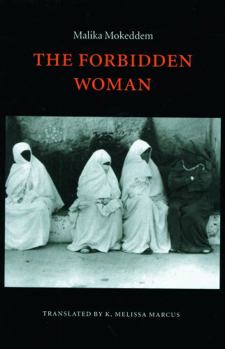The Forbidden Woman
Select Format
Select Condition 
Book Overview
The Forbidden Woman tells the story of Sultana, an Algerian woman doctor who, after years spent living in France, returns to her native village in order to attend the funeral of a former lover. The clash between her origins and the Westernized life she now leads is explored in telling detail against the backdrop of current events in Algeria. A work that combines insight into both political and personal matters, The Forbidden Woman develops a complex portrait of a country torn between progress and prejudice, secular life and Islamic fundamentalism.
In this passionate book, Malika Mokeddem places special emphasis on the position of women in modern Algeria. The frequent indignities and injustices suffered by the narrator reflect the plight of women in a society marked by patriarchalism and religious fundamentalism. Yet the novel also suggests that, along with modernization, there are emerging demands for women's rights in Algeria--demands that might well signal a vastly different future for this tormented nation.
Format:Paperback
Language:English
ISBN:0803282400
ISBN13:9780803282407
Release Date:February 1998
Publisher:University of Nebraska Press
Length:156 Pages
Weight:0.80 lbs.
Dimensions:0.5" x 6.1" x 7.9"
Customer Reviews
2 ratings
I couldn't put it down - facinating
Published by Thriftbooks.com User , 22 years ago
This book claims to take on, for the most part, the position of women in contemporary Algeria. But you can see many people's lives and how they're affected in this book. The narrative switches back and forth between Sultana, an Algerian woman doctor who lives in France, and a Frenchman in Algeria, Vincent. From the first few pages to the very end, it captivated me. It is hard to understand the FIS (Front Islamique du Salut, a radical Islamist Algerian political group) and their way of living. Sultana is an extremely dignified with much credibility and worthy of anyone's respect, yet she is called a [...] by her fellow Algerians when she walks on the street or goes to a bar or does anything really. The very end is the most surprising act of repression of all. But there are so many glimpses of hope in this book as well, the little girl character of Delilah, the nurse Khaled (even though he said some distasteful things to Sultana in the beginning, he emerged as a better character toward the end). It seems that Algeria is torn between the strong, fundamental Islam, and the changing world and people not wanting to be oppressed (who would?). Most of the Algerians I met were not very religious, but I was in the city of Alger and Bejaia. Maybe fundamentalism is always a negative thing when it comes to faith and sprituality. Nobody has the right to force their ideas on others, isn't that why we have rhetoric? (trying to be ironic). I'm sure this book was much better in its original French language text, although the translation is very good as well. Highly recommended. Algeria is facinating.
Excellent for the classroom.
Published by Thriftbooks.com User , 22 years ago
One of the very best works of contemporary fiction set in the Maghrib. Raises the issues you would want for class discussion without the aggressive "eradicatory" anti-Islamism of most Algerian writers.





